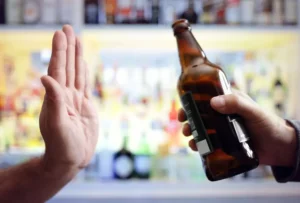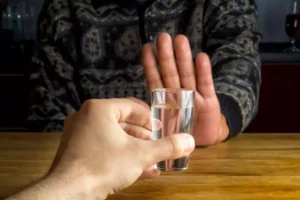Is Marijuana Addictive? Partnership to End Addiction

Signs and symptoms of inhalant use vary, depending on the substance. Some commonly inhaled substances include glue, paint thinners, correction fluid, felt tip marker fluid, gasoline, cleaning fluids and household aerosol products. Due to the toxic nature of these substances, users may develop brain how is marijuana addictive damage or sudden death. Diagnosis of CUD takes into account both physical and psychological aspects of addiction. The DSM-5 criteria also emphasize the importance of assessing for any co-occurring mental health disorders that contribute to an individual’s cannabis use.
What are the effects of secondhand exposure from cannabis smoke or vapor?
- This does not mean cannabis is a gateway drug, but early use can be one of numerous factors that influence future use.
- If you think you’re addicted to marijuana, getting an early diagnosis can help with treatment and prevent the risk of chronic conditions like schizophrenia.
Marijuana, scientifically known as Cannabis sativa, is a plant that has been used for centuries for various purposes, including medicinal, recreational, and industrial. The primary psychoactive component in marijuana is tetrahydrocannabinol (THC), which interacts with the brain’s endocannabinoid system. This system plays a crucial role in regulating various bodily functions, including mood, memory, appetite, and pain sensation. This condition can be diagnosed by a healthcare professional such as a medical doctor or psychologist.
Signs of Cannabis Addiction
Every person will have different outcomes from their treatment and recovery efforts will differ from one patient to the next, depending on their individual needs and preferences. Marijuana addiction, though not as deadly or dire as some other addictions, is still challenging to overcome, taking time, effort and patience. The road to recovery from marijuana addiction will likely have many ups and downs. Many people who try to quit smoking pot for the first time will fail and may have to try again, possibly a few times, before they find a recovery method and treatment program that works for them. Since many of these withdrawal symptoms mimic warning signs of other conditions and problems, an expert assessment by an addiction professional is necessary to determine whether marijuana withdrawal is the cause. It’s also important to note that marijuana potency has increased significantly over the years.

What is cannabis?
- Beyond consumption patterns, evidence is emerging that suggests certain individuals are more likely to develop a cannabis use disorder than others.
- Medication-assisted treatment (MAT) uses specific medications to manage withdrawal symptoms and reduce cravings effectively.
- Inpatient treatment involves a hospital or residential setting that offers 24/7 care and supervision while the patient undergoes treatment plans.
This happens because chronic use desensitizes the brain’s cannabinoid receptors, reducing responsiveness over time. Many people consider marijuana use to be relatively harmless, because they believe that it isn’t addictive, and because the drug can be beneficial when used for a medically prescribed purpose. Studies have shown, however, that chronic use of marijuana can be dangerous, leading to dependence, tolerance, and addiction. Long-term marijuana use can cause adverse effects both physical and psychological dependence, making it difficult to stop using, and even creating withdrawal symptoms in its users. The risks of marijuana use involve cognitive decline, respiratory issues, and an elevated likelihood of developing mental health disorders such as anxiety, depression, and psychosis.
Marijuana Addiction Resources
If you or your partner are trying to have a baby, doctors suggest that you both stop using marijuana. Some research suggests that it could affect both male and female fertility, but much more research needs to be done. But a big concern with CBD products is that the industry isn’t regulated.
Neglecting Social Life and Responsibilities

Addiction refers to the compulsive use of substances driven by strong physical and psychological urges. Research suggests that about 30% of people who use marijuana might have marijuana use disorder, the severity of which can vary. Carolina Center for Recovery is lucky to have some of the most qualified and experienced addiction specialists in the country. The state has legalized the medical use of marijuana under the Compassionate Care Act. Still, it is highly restricted and only available for certain medical conditions like epilepsy and terminal illnesses. According to the National Institutes of Health (NIH), cannabis use supports recovery by acting as a harm-reduction tool, although it is still controversial due to its potential for misuse.
Long-Term Effects of Cannabis on the Brain: Neuroimaging Studies
Our luxury marijuana addiction treatment centers are located in Scottsdale, just north of Phoenix, Arizona. Contact our addiction specialists to learn more about our compassionate and evidence-based treatment programs, designed to help individuals overcome addiction and embrace a healthier, fulfilling life. While the drug may be considered less addictive than other substances, the risk of addiction is still present. The bottom line is, it is always possible to have “too much” of anything.

Does cannabis addiction exist?
In 2018, it was more than 15%.8 Marijuana concentrates also have a much higher level of THC. Between the two, addiction is a greater possibility with current marijuana use than it once was. These symptoms often make it challenging for individuals trying to quit using marijuana without support Alcoholics Anonymous or intervention. The environment where one grows up can significantly impact substance use behavior. Factors such as peer pressure, family attitudes toward drug use, and accessibility can all influence an individual’s likelihood of trying and becoming dependent on marijuana. Healthcare professionals can support by diagnosing and then providing talk therapy, medications, or a combination of the two.

While marijuana is viewed as a relatively harmless substance, its use carries various risks, especially when consumed frequently or in large quantities. The effects of marijuana impact mental, physical, and social functioning, leading to long-term complications in some instances. However, it’s important to note that the potential for addiction is not the only factor to consider when evaluating the harm caused by substance use.